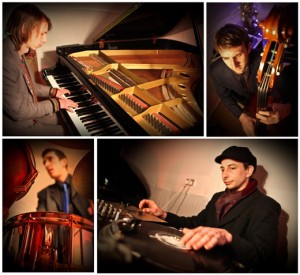 ABOUT a year ago I was pointed in the direction of a band that a friend thought I would like. A young jazz outfit here in Bristol called Lund Quartet, who were apparently rather good. Being slightly sceptical, which is a bad habit of mine, I checked them out. I found a track on Youtube called “Sequoia” and dutifully clicked the play button. I don’t know what I was expecting, but whatever it was, it wasn’t this. A sparse piano driven groove that built up gently with double bass and drums combining to form an understated toe-tapping beauty that I really was not prepared for. It was so simple, but yet it was perfect; subtle and compelling in a way that was not pretentious or overreaching, or anything like that. Then the riff broke down, and suddenly a guy on a turntable was cutting in the most haunting and perfect trumpet lines. He was using his decks as an actual instrument in the band. This may not seem like such a big deal, surely loads of bands utilise decks in their act and recordings, but this is really just like an instrument, a lead one. Not only that, it was played with steadfast reserve and to my ears emitted some real feeling through the cut up trumpet phrases he was playing with. How many acts with turntables achieve that? I later learned that most of the sounds used on the turntables are specially recorded by the band and are mainly local musicians whom the band know. I think this is cool, and possibly unique.
ABOUT a year ago I was pointed in the direction of a band that a friend thought I would like. A young jazz outfit here in Bristol called Lund Quartet, who were apparently rather good. Being slightly sceptical, which is a bad habit of mine, I checked them out. I found a track on Youtube called “Sequoia” and dutifully clicked the play button. I don’t know what I was expecting, but whatever it was, it wasn’t this. A sparse piano driven groove that built up gently with double bass and drums combining to form an understated toe-tapping beauty that I really was not prepared for. It was so simple, but yet it was perfect; subtle and compelling in a way that was not pretentious or overreaching, or anything like that. Then the riff broke down, and suddenly a guy on a turntable was cutting in the most haunting and perfect trumpet lines. He was using his decks as an actual instrument in the band. This may not seem like such a big deal, surely loads of bands utilise decks in their act and recordings, but this is really just like an instrument, a lead one. Not only that, it was played with steadfast reserve and to my ears emitted some real feeling through the cut up trumpet phrases he was playing with. How many acts with turntables achieve that? I later learned that most of the sounds used on the turntables are specially recorded by the band and are mainly local musicians whom the band know. I think this is cool, and possibly unique.
I quickly bought their album, which is out through A Future Without, a fantastic indie label in the UK championing small and sometimes unknown acts, some of whom go on to achieve widespread acclaim (Throwing Snow and Kahn for example). The entire CD is full of beautiful sparse minimal jazz, some have called it Scandinavian Jazz, which is probably not far off the mark.
They have recently been getting airplay from some of the UK’s big name radio DJs, including the legendary Giles Peterson, and they’ve been playing all over Europe at jazz festivals and other similar gatherings. They are about to re-launch their album on September 24th (2012) after being picked up by a management company, and I suspect a lot more people will soon know about them, and maybe be as impressed as I was.
Seeing as they have a studio within 15 minutes driving distance from my house, I went down there and chatted with them.
Lund Quartet are ::
Simon Adcock—Piano and Theremin
Jake Whitlin—Turntable
Rob Childs—Double bass
Sam Muscat—Drums
Gustave Savy / Igloo :: When and how did you form?
Simon :: I met Jake (turntables) and was really intrigued by his use of turntables, not coming from that sort of background and knowing much about it. We started jamming with me on violin and piano, and Jake doing turntable stuff. There was some sort of musical connection there, we had similar ideas, but were coming from very different perspectives.
Jake :: Yeah, we instantly bonded because we had a similar idea of what we liked and what we wanted.
Simon :: Yeah, and we had different skills between us to achieve that end goal. What I lacked on my own, Jake had and vice versa.
Igloo :: How long ago was that?
Simon :: 2004?
Jake :: Errrrr, I think it was 2005.
Simon :: Yeah, 2005 sounds right.
Igloo :: Presumably you’d started writing down ideas some time previous to this (looking at Simon)?
Simon :: Yes, I’d been sketching out some thoughts and ideas since about 2002. Just literally ideas that I would jot down.
Sam :: You had quite a few songs written on your computer that you’d composed.
Simon :: Yeah, we’d take the chords and maybe the grooves from some of those skeleton compositions, then Jake would take the melody part and play it on the turntable, which was something very new and different. It got me really excited about playing with a turntablist. Initially, Jake took my violin recordings and would improvise them back via the turntables over me playing piano, so I was sort of playing with myself…
(snickering from everyone)
In fact that ended up becoming the track “Lonn” which is on the CD. It was the first proper track we did together. We did that for a year, with Jake programming beats and loops, then we decided that we should really try to put a band together. I knew Rob the bass player from university actually, and had been in a gypsy skiffle punk band with him. And Rob knew Sam (drummer).
Sam :: I came back from London, and Rob said there was this project he was involved with, come for a jam. I did, and have been here ever since. Rob and I go back years.
Simon :: But it’s only in the last couple of years that we all gave up the other bands we were in and dedicated ourselves to this project. We rented out this industrial unit and spent a year transforming it into a studio.
Igloo :: So did you build this all yourself?
Simon :: Yeah, it was just a concrete and tin shell when we moved in.
Sam :: We spent a whole year building a complete inner shell on a shoe string. We scavenged everything from skips and wherever we could. But now we have a pretty good functioning studio.
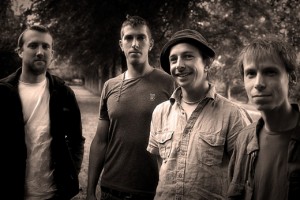 Simon :: The studio has actually been integral to us as a band. We needed a space that was permanently ours and set up with microphones so we could spend time working on tracks and recording them. Rather then hiring studios, which are all set up differently, and very expensive, having our own meant we could really take the time to experiment with different recording techniques and song arrangements until we had something we were happy with. Also, until then, I only had an electric piano, which I felt stopped us achieving our potential, so when the studio was done, I bought a grand piano on my credit card. The band couldn’t work without a proper instrument.
Simon :: The studio has actually been integral to us as a band. We needed a space that was permanently ours and set up with microphones so we could spend time working on tracks and recording them. Rather then hiring studios, which are all set up differently, and very expensive, having our own meant we could really take the time to experiment with different recording techniques and song arrangements until we had something we were happy with. Also, until then, I only had an electric piano, which I felt stopped us achieving our potential, so when the studio was done, I bought a grand piano on my credit card. The band couldn’t work without a proper instrument.
Sam :: That’s what really inspired the album, having the studio and the piano.
Simon :: We had no money, so this was the only way of doing it really.
Igloo :: What about the Theremin? How did that come about?
Simon :: I first heard it on “Dummy” by Portishead, well what I thought was a theremin anyway, and was fascinated by it. And of course, I’ve always like “Good Vibrations” by the Beach Boys, even though that again turned out not to be a theremin at all. But, yeah, I’ve always been interested in it. So I bought a kit from Moog and put it together. I really wanted one you could play as an instrument rather then just a novelty item. It took several years to learn, I think playing the violin helped.
Sam :: It sounds great, there’s a danger with these things of becoming a gimmick, but this really functions as a part of the band.
Simon :: I find it a much more expressive instrument then the piano. I can’t sing at all, but I can reproduce some of the things that I hear in my head, which I can’t do on a piano. That’s what I get from the theremin. It definitely works, but as you say, there’s a fine line between something being interesting and becoming a novelty.
Sam :: Like the turntables. That could have been just a novelty gimmick, but has ended up being a fundamental instrument in the band.
Igloo :: Yes. In fact, that’s the next thing I wanted to ask you about. The turntable taking the role of the melodic instruments is something quite unique to you isn’t it?
Jake :: Yeah I’ve tried to find people doing this on Youtube, and I haven’t been able to find anyone doing quite the same thing. The closest I’ve found is Birdy Nam Nam. I check regularly!
Igloo :: Yeah, there’s a lot of really skilled turntablists out there, but to see it used as a functioning part of a band is unique maybe?
Jake :: Yeah, most, if not all turntablists, including me, come from a HipHop background and learnt their skill in a battling context. This naturally means that the predominant style is one of aggression and fitting as much into as short a time frame as possible to defeat your opponents. Pretty much the polar opposite of what I try to do in Lund Quartet. I suppose the art of turntablism is still relatively new, so it’s still very much about displaying skills rather then fitting in musically with other elements in a group. Although there are some great turntablists out there who display maturity and skill together, like D-Styles or Kid Koala for example.
Igloo :: True, but good as they are, it’s different to what you do. I mean they’re still essentially one-man shows based around the turntables, whereas you actually use yours with reserve as part of an otherwise mostly acoustic band.
Jake :: it’s not technically that good what I do in the band.
Sam :: But the important thing is that Jake becomes the solo instrument in the band to our rhythm section. It’s very important the melody comes from wherever, but it has it’s rests and doesn’t dominate entirely.
Igloo :: Well, your music certainly has lots of rests. Actually, space is a better word.
Simon :: That’s what’s taken all this time to get. Because in my head that’s what I hear—space; a note falling perfectly and then nothing else after it. That’s what’s taken the time to get right.
Rob :: That’s why the studio was so important. We could record stuff then listen back and realise there was too much going on, so we could then go back and change it.
Jake :: I was always playing too much. It took ages to be able to strip it all back and just play what was necessary.
Sam :: It was a big learning curve and a great experience. It’s given us a lot of ammunition for the next album. I wouldn’t say we have a mould to work from, but we have a much greater understanding of how to harness our sound.
Igloo :: Do you think living and making music in Bristol has influenced what you do, or do you think you would do this the same wherever you were?
Sam :: I think where and how you grow up influences and shapes you as an individual. I don’t think it’s the city particularly.
Simon :: I was into the sounds that came out of Bristol when I lived in St Albans.
Jake :: I moved to Bristol because of the music that was coming from here. It attracted me to the place.
Simon :: Actually, I moved from Bath to Bristol for the music.
Sam :: I think we’re reluctant to say we owe the city for our music, but it’s so free here, and there’s always a stage for us to show what we do. That really helps. If we were in a small town or something, it would be difficult to get anyone to hear us.
Simon :: So many people have offered us gigs in Bristol and been receptive to what we’re doing. That in itself has made it possible to keep doing what we do.
Sam :: There are so many musicians in Bristol that you can end up chatting to strangers about music and become inspired. You don’t have to be a musician working at the top level to have respect as a musician here. That’s maybe the spark that Bristol has.
Igloo :: Scandinavian Jazz is a phrase that keeps popping up with reference to you. Are you happy about that?
Simon :: Yeah definitely.
Sam :: It’s a bit of Simon’s heritage.
Simon :: My Mum is Norwegian, so I’ve spent a lot of time in Norway. I got really into E.S.T. (Esbjörn Svensson Trio), they were and still are a huge influence on me. I’m not really into jazz if I’m honest, especially the American stuff. It’s so fast and busy and really technical, so much so that you almost need to have formally studied it to be able to appreciate it. But the Scandinavian jazz all has this great sense of space, but also has melody. It’s that mixture of free improv but also being accessible that I love. But then I also just love a good groove as well you know? So I think the idea in Lund is to try and combine those elements.
Sam :: That’s how E.S.T. inspired us, emotive deep chord movements and groove. Crossing boundaries without you realising it. With Jake pushing boundaries with his use of turntables I feel we’re trying to turn a corner, which is difficult these days in music. I don’t think we’re there yet, but it’s heading in the right direction.
Simon :: But we didn’t set out to do that.
Sam :: That’s what’s so encouraging. We just played what we liked and thought sounded good, and it just evolved.
Simon :: Quite often, Jake will just buy a new record, drop the needle on and with a bit of playing that will be the seed for a new idea. It’s great that Jake is able to play, or be any instrument. That allows for an almost never ending pool of ideas we can draw from.
Rob :: In fact some of the best resources have come from the use of recordings made by people we know. On the album, there’s only one sample that isn’t original.
Igloo :: That’s another thing that sets you apart I think. Using specific recordings made by yourselves to use in your tracks via the turntables.
Jake :: Well, people have done that before actually. But yeah not many, and a lot of it is pretty hard to listen to. Hopefully I’ve made the turntables a bit more accessible to people who didn’t think they liked them.
Igloo :: What is you setup regarding the turntables?
Jake :: It’s a regular set of turntables with timecode vinyl and a laptop running the Serato software. I use a MIDI controller to control settings so I can change sounds or whatever quickly during a performance, and then I run a tape delay pedal on the output. This allows me to use any sound I can get onto my computer as if it was on a record.
Igloo :: What have been your most memorable gigs?
Rob :: The album launch at the Cube Cinema was amazing, absolutely packed in a really amazing setting [an old cinema complete with antique seats].
Simon :: We were in Estonia a few weeks ago which was amazing, we played at the Tallinn Jazz Festival, which is in a very old gothic looking town.
Sam :: At the end of the set we were stormed by people buying CD’s, we completely sold out in minutes, and we had to sign them too.
Simon :: I think a lot of jazz is very serious, with people going to university to study it. It becomes technically very good, but a bit safe possibly. We are not the most technically adept, but maybe take a few more chances and do something a bit different. I think people respond to it. Actually, the biggest problem is finding a venue with a piano. We’re just starting to get a few recently with pianos provided. We’re playing in the foyer of the Royal Festival Hall, which is another level up really for us.
Sam :: We’re playing in Norway with a piano provided. In the Arctic circle. All theses gigs have been garnered off our own backs so far, but we’ve just got some management interest recently.
Igloo :: So you’re re launching your album with some PR?
Simon :: Yeah, we’ve got management and PR. Up until now it’s been all done off our own backs, but this is doing it again with people who know what they’re doing basically.
Sam :: Apart from A Future Without (the band’s current label), they’ve always been really helpful, keeping things rolling along.
Simon :: Yeah, they’ve been great, and our album is out through them. It’s been a bit of an informal arrangement in a way, but Will (Label boss) has always been there keeping momentum going. They’ve been great to us and got the music out via their digital distribution.
Igloo :: Finally, what are your plans for the coming future?
Simon :: We’re starting to look at new material for the next album now, recording next year hopefully out September [2013]. Get better at live shows. We’re very much a live band, that’s what we love. Just getting better, doing better gigs.
Jake :: More videos, the previous videos we’ve down have been really good processes. It’s important for people to know we are a live band, and the videos can show that.
For more information about Lund Guartet, visit lundquartet.com and their self-titled album will be available September 24, 2012 here.






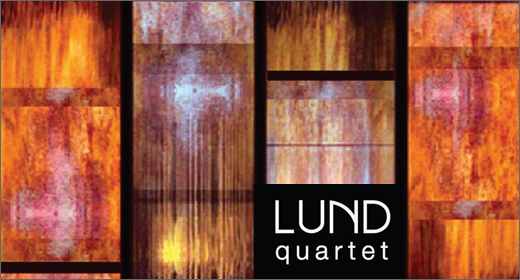



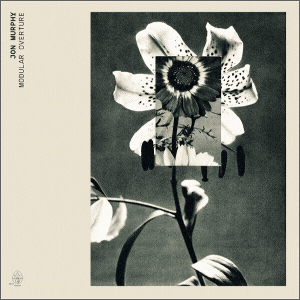
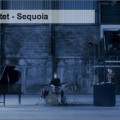
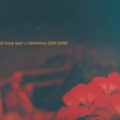
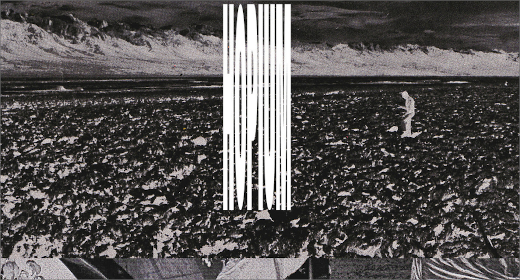
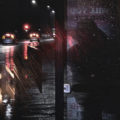
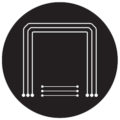
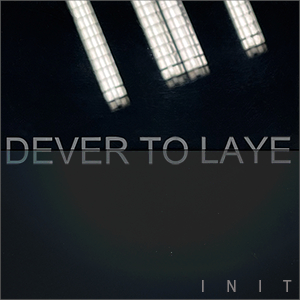

![Romanowitch :: A critical season substitute (glitch.cool) — [concise]](https://igloomag.com/wp/wp-content/uploads/2025/03/romanowitch-a-critical-season-substitute_tape_feat-75x75.jpg)






